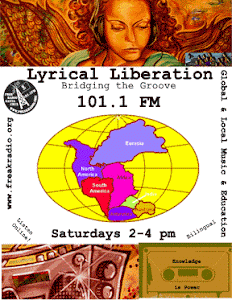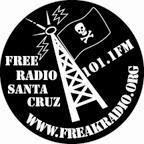
*Resistanz*
They have made us know the way to jail
Shut us in their concentration camps
But we have not lost sight of our goal
We are a people of resistance
Slavery, occupation, nothing has broken us
We have slipped through every trap
We are a people of resistance.
~Recorded by SoAnn
SoAnn Auguste is a sixty-something folksinger who sings of the joys and sorrows of the Haitian people. Over a year ago, she was thrown into jail – though not charged – and remained in the overcrowded, fetid cell without medical help for a year. Perhaps the small ruling class didn’t like her lyrics. She was released a
few months ago and was to have toured Canada; we were expecting her in Victoria mid-March, but her doctor convinced her to postpone the trip.
It’s shameful that countries like Canada, France and the USA – rich in natural resources, and accumulated wealth – should decide that Haiti, the poorest country in the Hemisphere, must not enjoy the government it chose.
After two generations of the US-backed Duvalier dictatorship ended, Haitians placed their hope in the popular Lavalas (flashflood) party which chose Jean-Bertrand Aristide to be their leader. After Lavals’ massive win in Haiti’s first free elections, action followed: health care (new clinics staffed by Cuban doctors and nurses, and medical training for Haitians in Cuba), education (poor children went to school and had a hot lunch), literacy training, resistance to privatization, attempts to bring human rights violators to justice, an effort to create an independent judiciary. Even more dangerous to offshore profits, a higher minimum wage was enacted. Owners of sweatshops and factories, seeing their profits diminish, complained to their friends in the US and Canada. Thereafter, aid went only to Lavalas opponents. Their conspiracy to intervene was described in the Western media as “an effort to bring democracy to Haiti … to stabilize the country … to establish law and order”.
The CIA created and funded a paramilitary group called FRAPH, which trained in the Dominican Republic,
Haiti’s neighbour on the island of Hispaniola. These commandos crossed the border and raided several police stations, killing many policemen. In 2001, 30
heavily-armed commandos took over the Presidential Palace, and tried to oust Aristide. The Haitian police, aided by crowds of civilians fought off the attackers.
In 2003, a FRAPH contingent attacked one of Haiti’s hydroelectric power plants, causing massive outages. They assassinated Lavalas leaders in Cap Haitien, in the north of Haiti, and blew up Aristide’s former church while it was full of supporters praying for his safety.
A secret meeting of Canadian, US, OAS and other officials decided that ‘Aristide must go’. Canadian Foreign Affairs Minister Bill Graham and US Secretary of State Colin Powell demanded that Aristide ‘step down’. President Chavez of Venezuela, who, with Castro, was Aristide’s only supporter, offered direct military assistance to President Aristide under the Rio Convention and the Democratic Charter of the OAS. (cf Kevin Pina interview with Amy Goodman, p.88, “Getting Haiti Right This Time” Noam Chomsky, Paul Farmer, Amy Goodman, Common
Courage Press, 2004)
Three days later, March 1, 2004, Aristide and his wife were escorted by US Marines to the airport ‘secured’ by Canadian soldiers: they were flown to the Central African Republic. Shortly after his abduction, Aristide was rescued from the Central African Republic by a group from CARICOM and given sanctuary in Jamaica. He returned to Haiti to the great joy of his supporters, but seeing that his presence would continue to exacerbate the fragile peace, he is now in South Africa.
In February 2006 new elections were held, marked by intimidation of Lavalas supporters, electoral fraud and such mean-spirited ploys as voting stations being placed far from the populist areas and being open for too few hours. Nevertheless, the polls gave René Préval of Lavalas, more than 60% of the vote. The ‘official’ tally announced was 46%. Lavalas supporters filled the streets and cried foul. Many were shot. A few TV reporters found thousands of ballots, most marked for Préval, smouldering in a dump from failed attempts to burn them. René Préval was declared the winner. Violence marred his inauguration as thousands of illegally-detained prisoners broke out of prison, while the United Nations peacekeepers’, MINUSTAH, fired
at unarmed prisoners still inside.
In June ’06 several high-profile prisoners were released from jail. So-Ann Auguste, popular folk-singer was freed. Yvon Neptune, former Lavalas President, also known for his work with children in the slums, was also released just as he was near death. In Sept., The Lancet, a prestigious British medical journal, published a tally of human rights abuses in the capital in the 22 months since the coup of 2004: 35,000 rapes and 8,000 murders. MINUSTAH soldiers were accused of most of the sexual violence, and members of the illegal interim government of most of the murders.
The ‘war against the poor’ has not abated.
MINUSTAH is still being deployed in bloody raids into the poorest and most vulnerable parts of the capital and other mercenaries are terrorizing the countryside where they suspect Lavalas supporters. A Bolivian commentator, distressed by the role of Bolivian soldiers in MINUSTAH, says “In a context of integration based on "solidarity", like ALBA, it might be appropriate to ask ourselves whether the future of Haiti, which is in a profound state of social disintegration, lies in the UN's military approach or through continental cooperation, independent of the great powers and imbued by a Latin American vision oriented around the interests of the majority impoverished Haitian masses. (Pablo Stefanoni, ‘Bolivia Rising’, March 2007)
So what can Canadians do in the face of such gross injustice? Is it even possible to do anything useful?
Knowledge is power: let’s start by learning more about Haiti and let’s protest the role our country has been playing in Haiti’s martyrdom.
Let’s support groups which inform us about Haiti: locally, Victoria Peace Coalition which has brought us a series of speakers and film-makers to keep us up to date, and Canada-wide,
the Canada-Haiti Action Network, which provides your computer with breaking news and web-sites for in-depth analysis. Let’s write to our elected officials: those, like Denise Savoie, who are already informed and on-side, and the others, who may not know what harm Canada is doing in Haiti in our name.
MUMIA ABU JAMAL: "Behine the Coup D'Etat in Haiti"
THIS IS HOW TO HELP HAITI !
Cuba and Venezuela have just created a 1 billion fund to help Haiti, with resources devoted to purchase equipment, build homes and provide assistance to the Cuban doctors to be deployed in Haiti, said the Venezuelan People's Power Ministry of Communication and Information(MINCI) on its website.
In a joint news conference with Venezuelan President Hugo Chávez, Haitian President René Préval announced the signing of several cooperation agreements during a tripartite meeting with Cuban State Council Vice-President Esteban Lazo. “With Cuban help, healthcare will soon be provided in all Haitian communities even remote ones. A group of Haitians are taking medical studies in Cuba. They will replace Cuban doctors now working in Haiti. Also, Venezuela has provided USD 20 million in humanitarian aid to strengthen cooperation in healthcare," Préval explained to Castro on the phone. "President Castro took part in the meeting by phone to consolidate trilateral cooperation among Cuba, Venezuela and Haiti,"
Chávez declared before leaving Haiti, where he ended his tour of several Latin American and Caribbean countries. The three governments entered into an agreement under which Venezuela undertook to install four electric powerhouses with an overall capacity of 100 megawatts in Port-au-Prince, Cap Haitien and Gonaives.
President Hugo Chávez also officially announced that Venezuelan state-run Economic and Social Development Bank (Bandes) would create a USD 20 million to finance development projects in Haiti. Venezuela will spend USD 57 million to overhaul Haitian airports, and will also provide 7,000 bpd of crude oil to the island, besides the 7,000 bpd Venezuela provides to Haiti under Petrocaribe.
President Chávez seized the opportunity to clarify that he has nothing personal against George W. Bush. "This is not about Chávez versus Bush or Bush versus Chávez. If this were a personal matter, he would have been knocked down a long time ago….Bush embodies the imperialist model of colonial domination. We represent…. the Bolivarian project of liberation of our peoples," said Chávez. --Andrée Scott



No comments:
Post a Comment